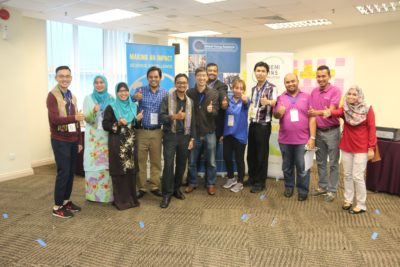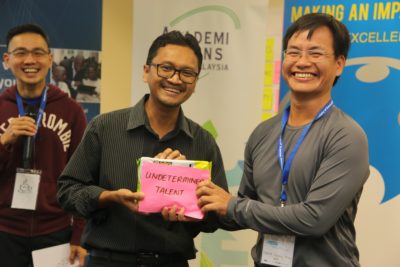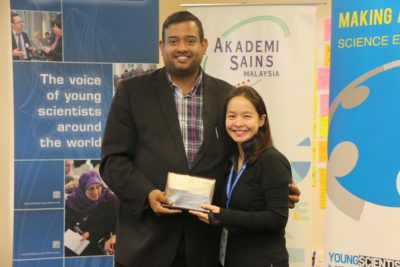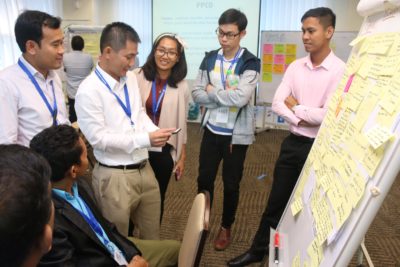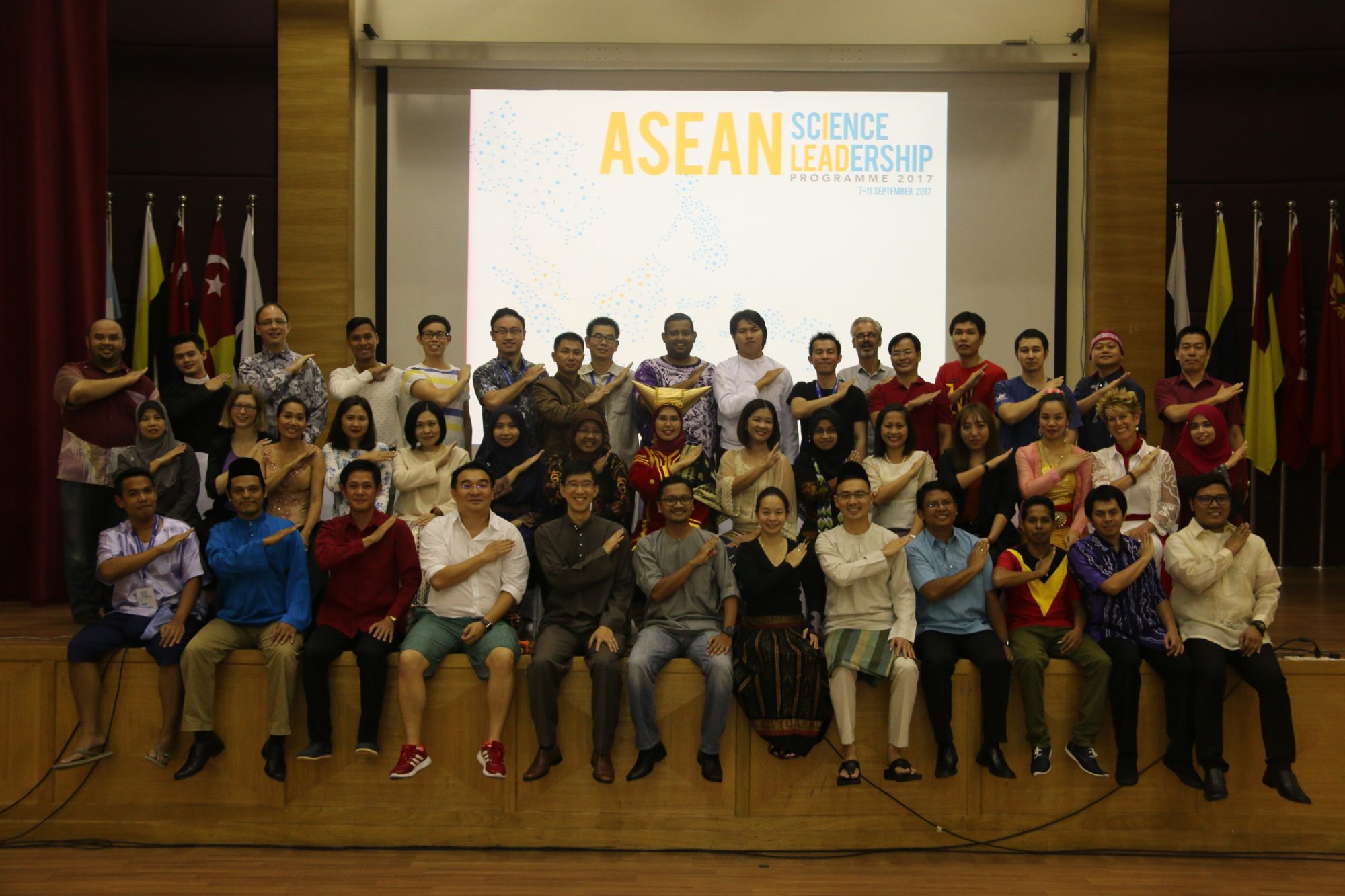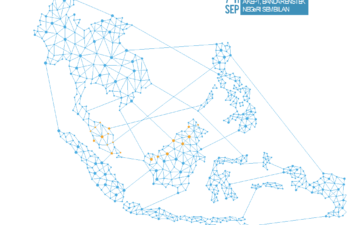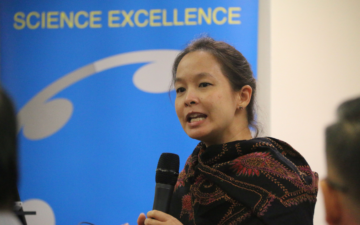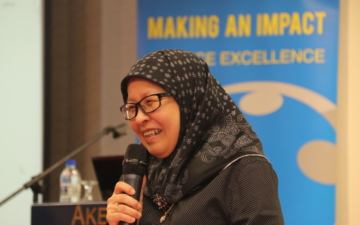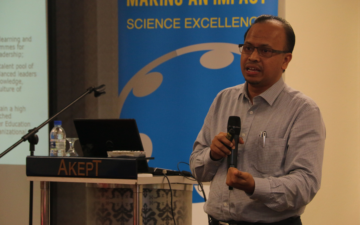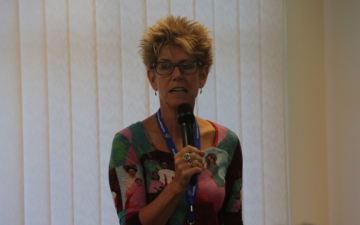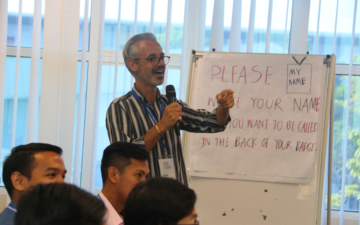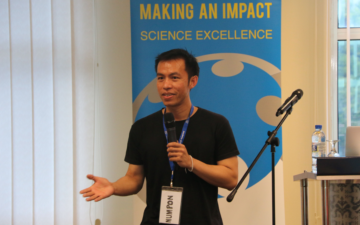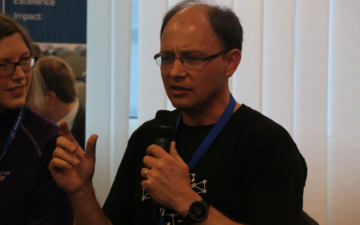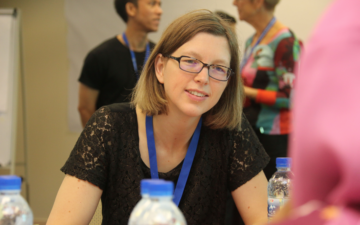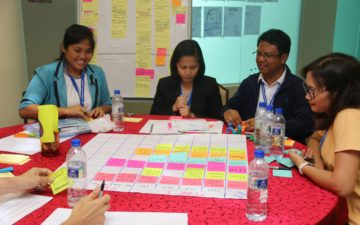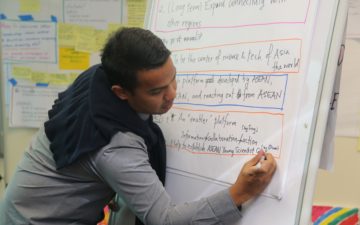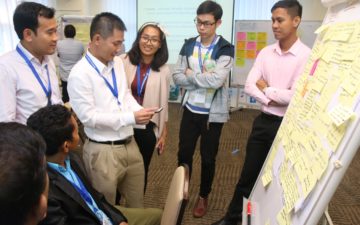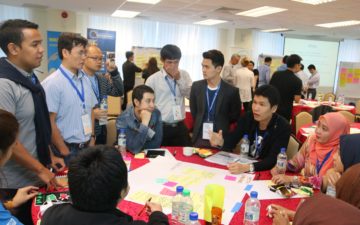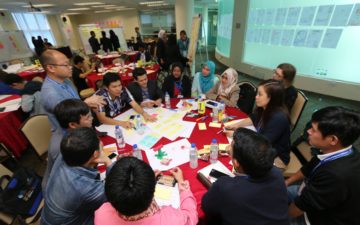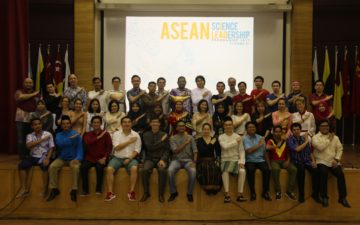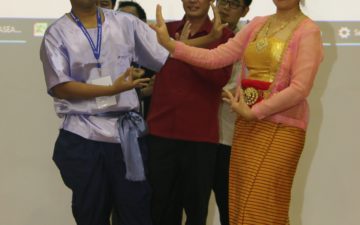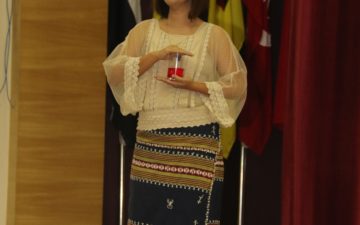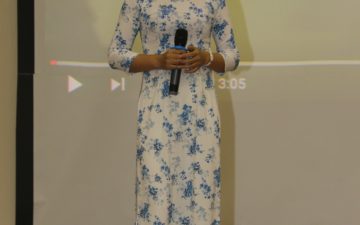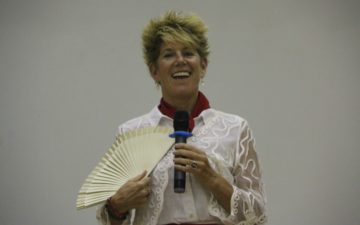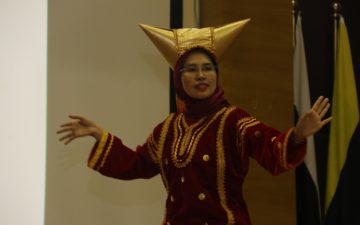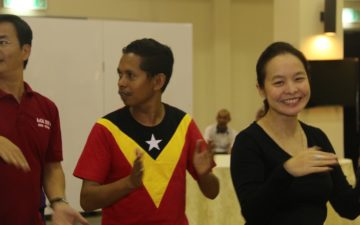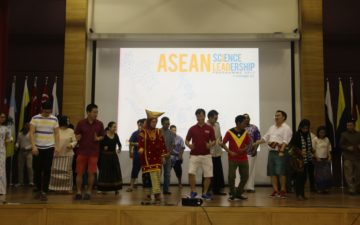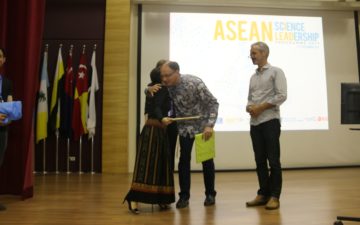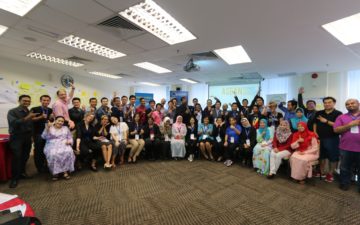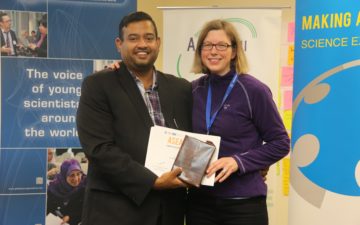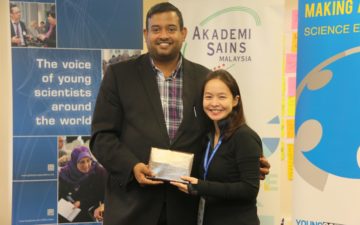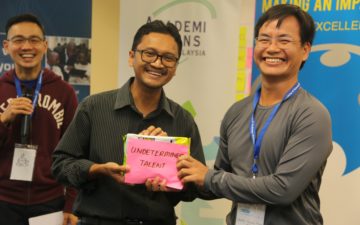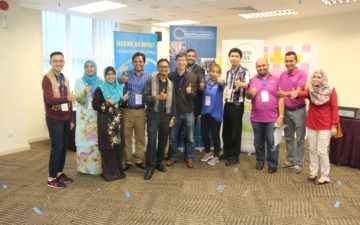The Young Scientists Network-Academy of Sciences Malaysia (YSN-ASM) and the Global Young Academy (GYA) in cooperation with the Malaysian Higher Education Leadership Academy (AKEPT), the Thai National Science and Technology Development Agency (NSTDA), and the World Academy of Sciences Young Affiliates Network (TWAS-TYAN) successfully organised the ASEAN Science Leadership Programme (SLP) 2017 in Malaysia from 7 to 11 September 2017. The Ministry of Science, Technology and Innovation Malaysia and the Ministry of Higher Education Malaysia also endorsed the programme.
The 2017 programme in Malaysia was the 2nd edition of the ASEAN SLP and had 39 participants from 12 countries. The programme was organised under the leadership of GYA member and Chair of the Young Scientists Network-Academy of Sciences Malaysia, Prof Dr Abhi Veerakumarasivam, who was supported by a local organising committee led by Chair, Prof Dr Iqbal Saripan (Universiti Putra Malaysia) and Co-Chair, Dr Tee Keng Kok (Monash University Malaysia).
The first ASEAN SLP was organised in Thailand in 2016 under the leadership of GYA immediate past co-chair, Dr Orakanoke Phanraksa (NSTDA). The ASEAN SLP programme serves early- to mid-career researchers in basic and applied science, engineering, social sciences, arts and the humanities, and it focuses on developing collective leadership skills in the region. The programme is designed to grow mid-career ASEAN academics in the areas of thought leadership, team development, engagement and collaboration, with the intention of enabling them to solve the complex issues that exist in ASEAN and across the world. The aims of the ASEAN SLP 2017 included:
- Empowering young ASEAN researchers with leadership skills so that they can champion their national research and innovation agenda, and
- Promoting cohesion and collaboration between young researchers from various ASEAN’s future global research competitiveness.
The ASEAN SLP 2017 was a significant milestone in this regional GYA effort because for the first time, all 10 ASEAN countries (Brunei, Cambodia, Indonesia, Laos, Malaysia, Myanmar, Philippines, Singapore, Thailand, Vietnam) and Timor Leste were represented. A total of 35 ASEAN SLP participants, designated as fellows (including 6 returning fellows from ASEAN SLP 2016) participated in the ASEAN SLP 2017. The ASEAN SLP fellows benefited from expert facilitation led by Maggie Dugan and Tim Morley from KnowInnovation and GYA member and Thai Young Scientists Academy Chair, Dr Numpon Mahayotsanun over the 4-day programme. Past GYA Co-Chairs Dr Eva Alisic, Prof Bernard Slippers, GYA alumnus, Prof Dr Wibool Piyawattanametha and Prof Dr Abhi Veerakumarasivam played a significant role as mentors and provocateurs.
ASEAN SLP fellows were encouraged to phrase the current challenges that the scientific community within ASEAN faces in the form of problem questions. This enabled the fellows to then develop potential solutions to address the challenges. Participants were also equipped with various tools critical for effective leadership that would be relevant and transferable when they return to their respective home countries. The fellows were given the opportunity to practice these tools in small groups and to share their views on the effectiveness of these tools.
To provide an opportunity for the fellows to develop their leadership competency and leverage on the collaborative network that was established during the programme, the fellows were encouraged to initiate collaborative projects that addressed the challenges that were iterated at the start of the programme. Fellows that shared the same motivations grouped together organically to develop a project proposal and execution plan with specific milestones. Among the projects that the fellows have committed to work towards include:
(1) Developing an online-based ASEAN Young Scientists Network Platform in the form of a personalised database of young scientists in the ASEAN region that is designed to promote collaboration and landscaping of expertise that exists in the region;
(2) Science for Children (I LAB Science project) outreach programme that focuses on developing modules to promote STEM among school children in the region;
(3) ASEAN Responsible Conduct of Research (RCR) programme that focuses on promoting scientific integrity through the promotion of knowledge and awareness in the context of conducting responsible science in the region that will ultimately promote scientific excellence and mitigate undesired nefarious outcomes;
(4) Research sharing that develops a common platform for sharing of research resources and facilities among ASEAN countries;
(5) Establishment of new National Young Academies (NYA) in countries that currently don’t have NYAs with the support from GYA and established NYAs such as YSN-ASM; and
(6) Crystallization of the ASEAN Network of Young Scientists that will lead the vision to achieve the ultimate goal of positioning ASEAN as a global player in science leadership.
The ASEAN SLP 2017 truly celebrated the spirit of “unity in diversity”. Fellows quickly bonded over the shared experiences, culture and values within the region as well as a genuine enthusiasm to understand and appreciate the unique differences in the cultural and lived experiences of each individual country in the region. The potential of the ASEAN SLP as a tool of science diplomacy was not only evident throughout the discussions but also extended to the social programmes; especially during the ‘Gala Dinner’, where the fellows showcased their beautiful cultures that exist across the region.
The success of the two editions of ASEAN SLP is further evidenced by the interest and buzz it has generated amongst the key stakeholders at an individual country level as well at an ASEAN level; where the fellows have been invited to present their voice and the various initiatives planned at the recently concluded 51st Meeting of the ASEAN Sub-Committee on Science and Technology Infrastructure and Resource Development (12-13 October 2017) and the ASEAN Science Technology and Innovation Conference (19-20 October 2017), both of which were held in Nay Pyi Taw, Myanmar. These presentations by Dr Ng Sing Muk (YSN-ASM, Malaysia), Dr Chau De Ming (YSN-ASM, Malaysia) and Dr Orakanoke Phanraksa (Thailand) are indeed huge milestones. The GYA is indeed excited to continue to support and champion the amazing work by the various national young academies and individual scientists in the region.
